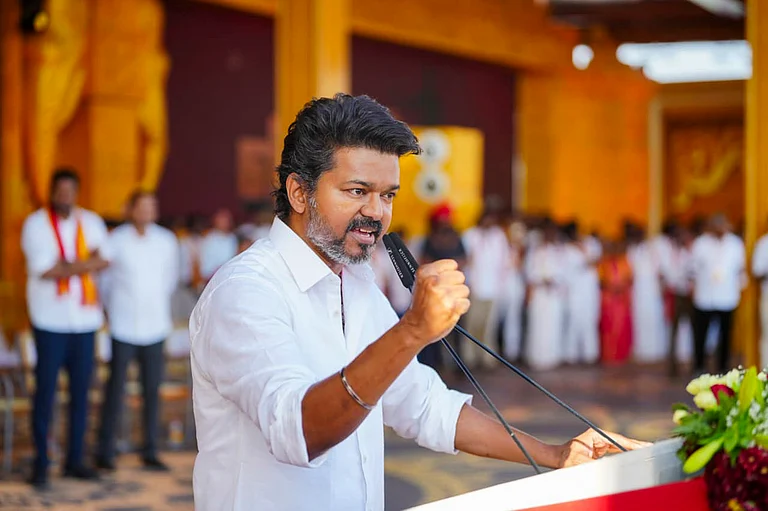The Supreme Court on Wednesday heard the suo moto case related to the "judicial indiscipline" of the Punjab and Haryana High Court judge Rajbir Sehrawat, who criticised the top court for staying proceedings in a matter before his bench.
The five-judge bench of Chief Justice of India DY Chandrachud, Justices Sanjiv Khanna, BR Gavai, Surya Kant and Hrishikesh Roy said that it is "pained" by the observations made by the Punjab and Haryana HC judge.
The apex court said that unnecessary observations have been with regard to so many things by Punjab and Haryana HC.
CJI Chandrachud, presiding over the special bench, said, "Observations made by Punjab and Haryana HC in its order are scandalous."
"Neither Supreme Court nor High Courts are supreme, supremacy is actually of Constitution," Chandrachud said.
The Supreme Court expunged "unwarranted" observations made in the Punjab and Haryana HC order, condemning the top court verdict.
The top court also refuse to initiate proceedings against Justice Sehrawat for his critical observations on SC's order.
The apex court had taken suo moto cognisance of the matter on Tuesday.
Sehrawat's remarks in an order dated July 17 said, "A tendence to presume the Supreme Court to be more 'Supreme' than it actually is and to presume a high court to be less 'High' than it constitutionally is."
Sehrawat had to adjourn a contempt proceedings initiated by him to be in accordance with the Supreme Court's stay.
The HC judge had said, "But this (adjourning a case because of SC order) may not be always possible for an HC to follow such a course in view of particular facts and circumstances embedded in a particular case or because of involvement of some statutory provisions. That would be an unfortunate situation, which would better be avoided."
Sehrawat had had cited provisions of an Act and said that even an appeal does not lie before the top court against an order passed by a Single Bench, adding that it rather lies before the HC's division bench.
He said that the terms of stage of appeal and nature of order which the apex court could pass is also very well defined.
Days after Sehrawat's order, the High Court Registrar General -- on the basis of orders from the CJI -- declared in a notice that the contempt matters at the High Court would now be heard by Justice Harkesh Manuja.
Justice Sehrawat, in his order, had also called the apex court's stay order to be "in the nature of controlling roster of High Courts in hearing of criminal cases".
"SC may have power to permit a special appeal by a 'party' to contempt proceedings before HC, against certain types of orders of contempt court under ceratin circumstances, however, in the present cae neither there are any such circumstances, nor has any special appeal been filed by the respondents against any such order of the contempt court," Sehrawat had remarked.
He said that the top court itself had clarified multiple times that the High Court is not 'subordinate' to it. The HC judge noted that the relation between the HC and SC was not the same as the relation between a Civil Judge (Junior Division) and the HC.
Justice Sehrawat then pointed out the "drastic and damaging consequences" of such stay orders in contempt proceedings and commented that same "may not have occurred to the Supreme Court in its most wide imaginations".
He defended the initiation of contempt proceedings in connection to the non-filling up of posts of judicial officers and asked, "Who is responsible for this plight of judicial officers manning the superior judiciary of state of Punjab and state of Haryana. Is i HC or is it SC?"
Sehrawat said "in humble opinion of this Court should sound a note of caution even for the Hon'ble Supreme Court to be more specific in causing legal consequences through its order".
"Otherwise, if this is the interpretation given by a High Court to such an order then one can very well imagine the damage which could ensure between private parties, on account of such an order, where the parties are intensely fighting with each other," Justice Sehrawat's order read.


























